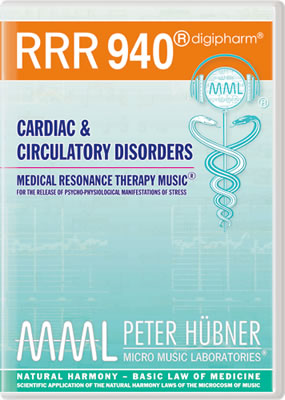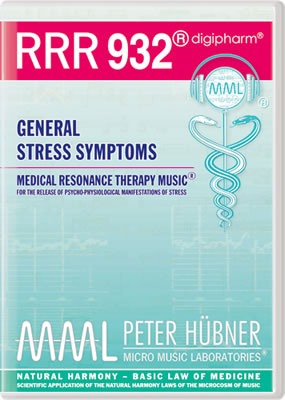| „āĶ„ā§„ā®„É≥„ÉÜ„ā£„Éē„ā£„ÉÉ„āĮ„ÉĽ„Éü„É•„Éľ„āł„ÉÉ„āĮ„ÉĽ„É°„Éá„ā£„āĻ„É≥ | |
| Home • Site Map • Research • Reports • ŚõĹťöõÁöĄŚįāťĖÄŚģ∂ • Music Preparations • Fundamentals • News • „Éö„Éľ„āŅ„Éľ„ÉĽ„Éí„É•„Éľ„ÉĖ„Éä„Éľ • Store • Contact | |

figuratively, but literally
Sudden death, which is the leading cause of death in the world, is very frequently associated with an outpouring of stress related hormones that cause serious disturbances in heart rhythm that can be fatal, even in young, healthy people.
Such "fight or flight" responses to stress have been exquisitely honed over the lengthy course of man's evolution as life saving measures. Under severe stress, heart rate and blood pressure soar, blood sugar rises to furnish fuel for energy, blood is shunted away from the gut where it is not immediately needed for purposes of digestion to the large muscles of the arms and legs, to provide more strength in combat, or greater speed in getting away from a scene of potential peril.
The blood clots more quickly to prevent loss from hemorrhage, our pupils dilate to improve the range of vision, and a multitude of other reactions over which we have no control are immediately and automatically evoked.
All of these would have been useful, if not life saving, in helping primitive man to deal with sudden threats that demanded immediate fight or flight. However, the nature of stress for modern man is not an occasional physical confrontation with a saber-toothed tiger or a hostile warrior, but rather a host of emotional threats, like getting stuck in traffic, fights with customers, co-workers, or family, that can occur several times a day. Unfortunately, our bodies still react with these same, archaic, stereotyped responses, that are now not only not useful, but damaging and deadly.
Repeatedly invoked it is not hard to see how they could cause heart attacks, hypertension, strokes, ulcers, muscle spasms, and other “Diseases of Civilization”.
It is important to recognize that stress
is not always necessarily bad.
Winning a race or election can just be as stressful as losing, or more so.
A passionate kiss and anticipating what might follow is stressful, but hardly likely to be accompanied by the same psychophysiologic responses as having root canal surgery. Increased stress also increases productivity – up to a point, after which things deteriorate.
It’s equally important to emphasize that this level differs for each of us. It’s very much like the tension or stress on a violin string. Not enough results in a raspy, grating noise, but too much produces a shrill note that is irritating, or breaks the string. However, just the right amount of stress creates melodic and harmonious tones. Similarly, we all have to find the optimal amount of stress that allows us to make pleasing music in our daily lives, rather causing us to snap.
Just as stress is different for all of us, no stress reduction strategy works for everyone. Jogging, meditation, yoga, deep breathing or progressive muscular relaxation exercises are great for some individuals. However, when arbitrarily imposed on others, they can be boring and stressful.
Stress is an unavoidable consequence of life
There are some stresses you can do something about and others you can’t. The trick is in learning how to distinguish between the two. The best way to accomplish this is to take time to write down all the things that you find stressful in your life. Then separate them into two lists; those you can’t possibly hope to avoid or influence, and others that you might be able to control.
Try not to become preoccupied with the first list. If a loved one dies, it’s obviously stressful, but there is nothing you can do about it. Prioritize the items on the second list, so that you can use your time and talents more effectively, rather than being like Don Quixote, tilting at windmills.
If one of the items on this list is that what could be a 15 minute commute to work takes you an hour each way because of traffic jams, you could go to your superior and ask if you can come in and leave one hour earlier. If that’s not possible, then instead of fuming and honking your horn, utilize this time productively to listen to a CD of a book you haven’t had time to read, learn a foreign language, or benefit from the powerful stress reduction effects of the Medical Resonance Therapy Music.
Although the mechanism of action is not clear, the wide variety of rewards that have been achieved suggests an ability to activate the awesome potential for self healing and purposeful regeneration that resides in all of us.
However, theories don’t have to be correct, only facts do, and the facts are that this unique modality can provide numerous physical and emotional benefits.
Stress is an unavoidable consequence of living, and if you can’t fight and you can’t flee, you have to learn to flow. I encourage all of you, and especially patients with heart disease, to discover how the Medical Resonance Therapy Music can help you cope with stress, so that you will become more productive, rather than self destructive, and enjoy a much improved quality of life.
Prof. Dr. med. Paul J. Rosch
President of the American Institute of Stress
Clinical Professor of
Medicine and Psychiatry
New York Medical College
|
ą„ó√č§Ė¬ÉZÉČÉsĀ[É~ÉÖĀ[ÉWÉbÉN®
Medical Music Preparations on CD |
|||
|
© 1998- SCIENTIFIC MUSIC MEDICINE | Contact
Subject to change in the interests of scientific advancement.

